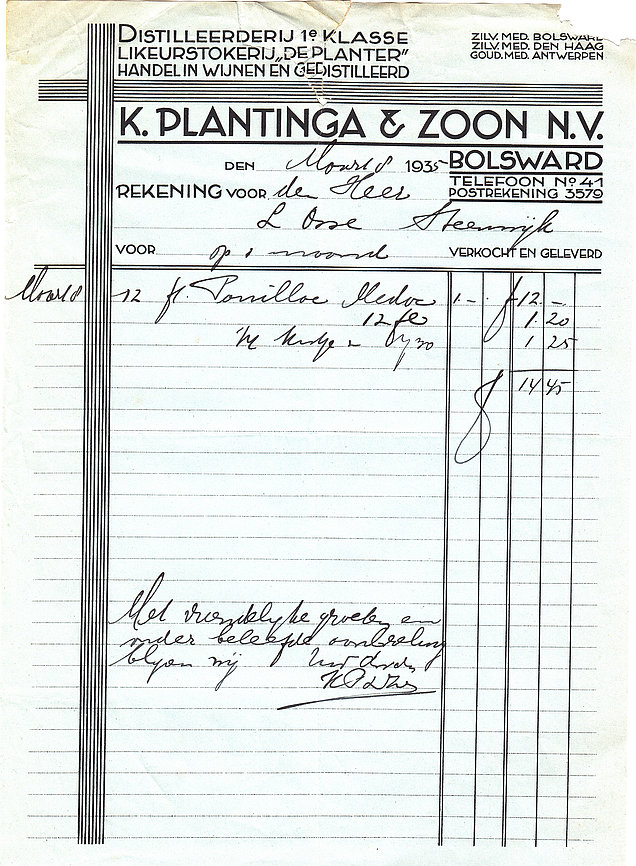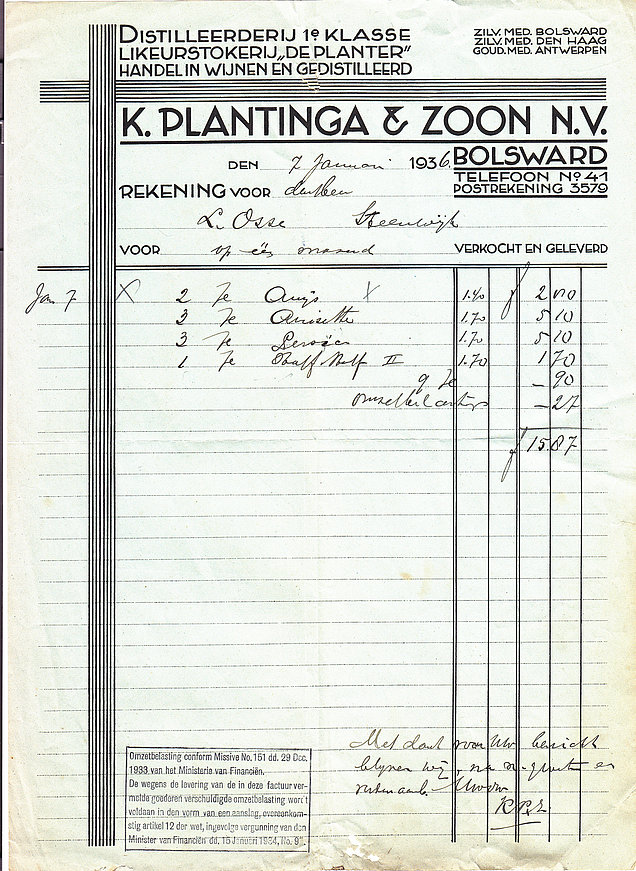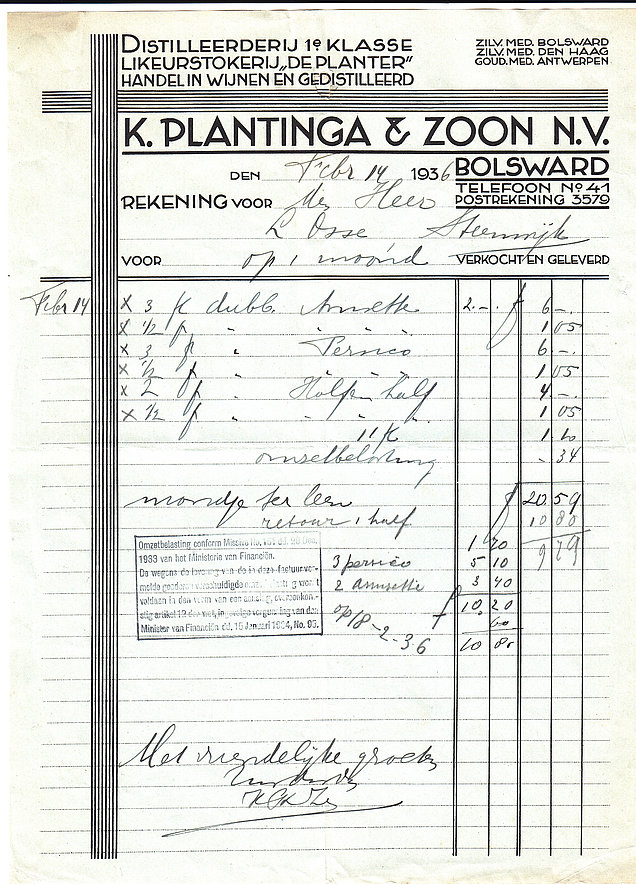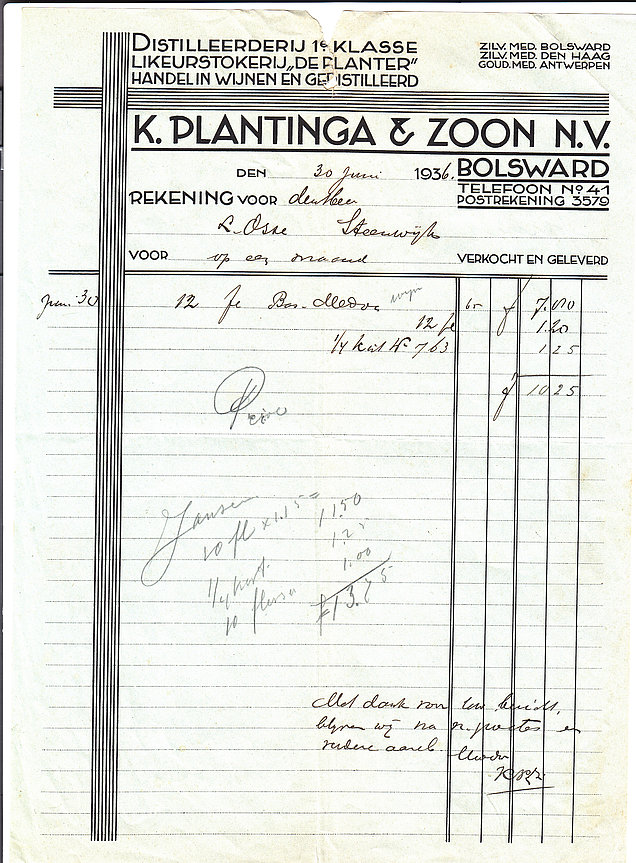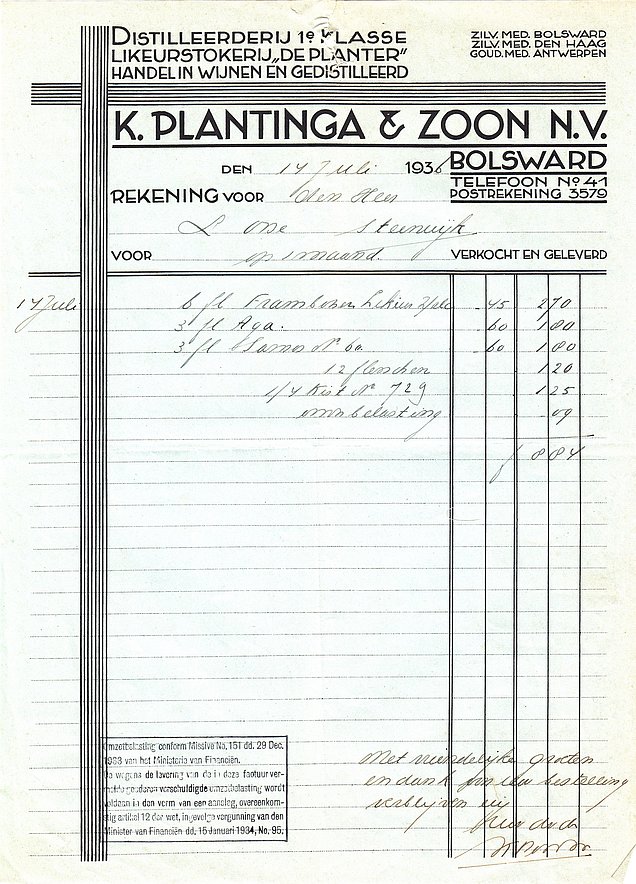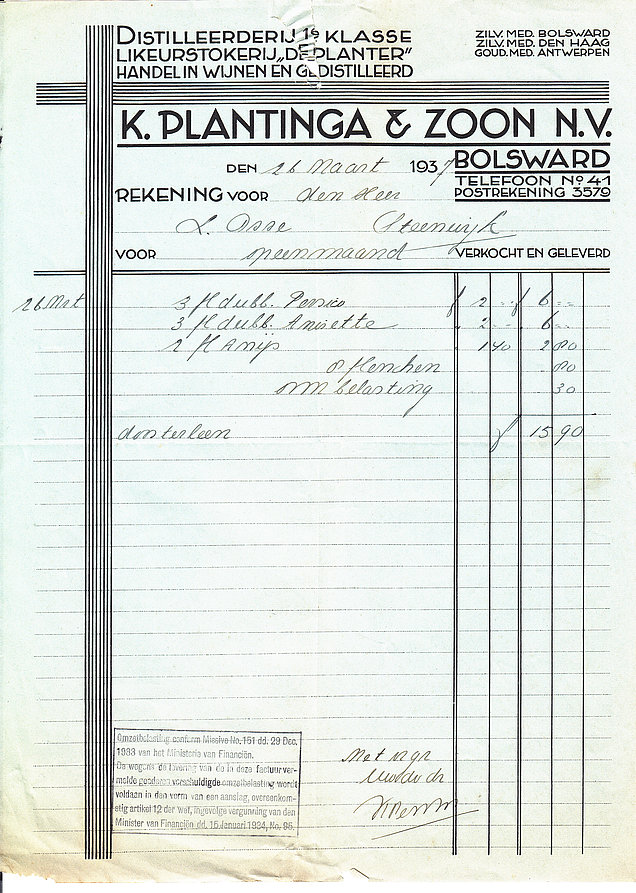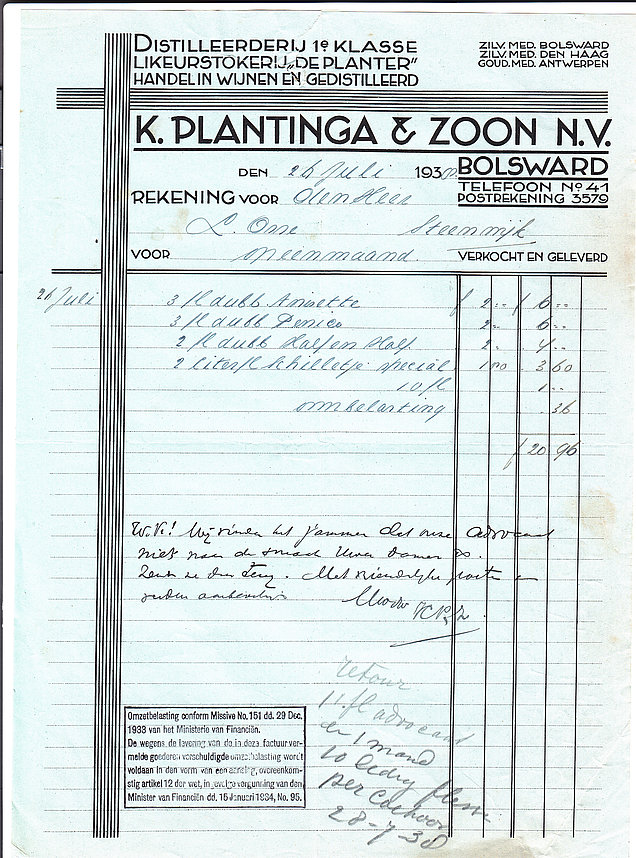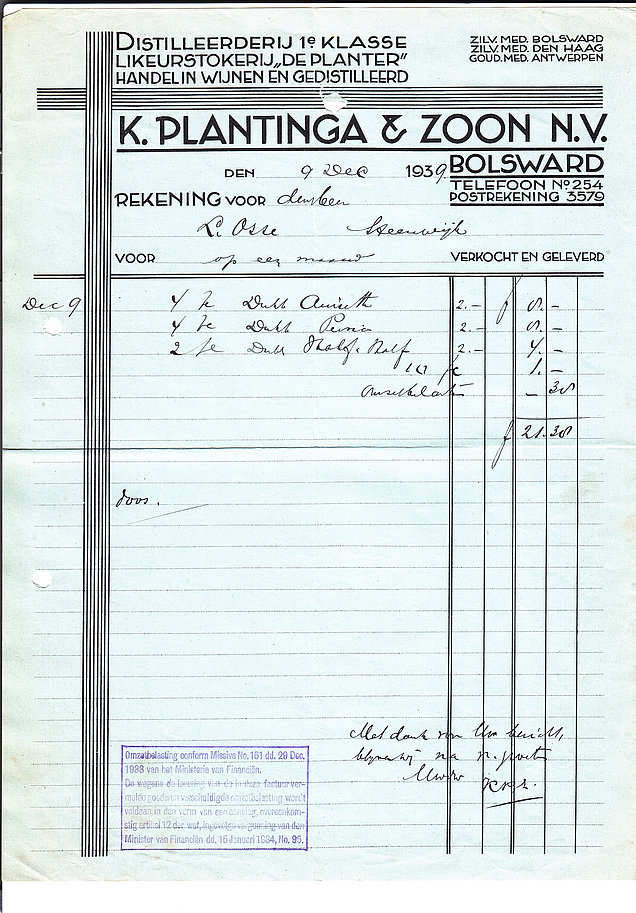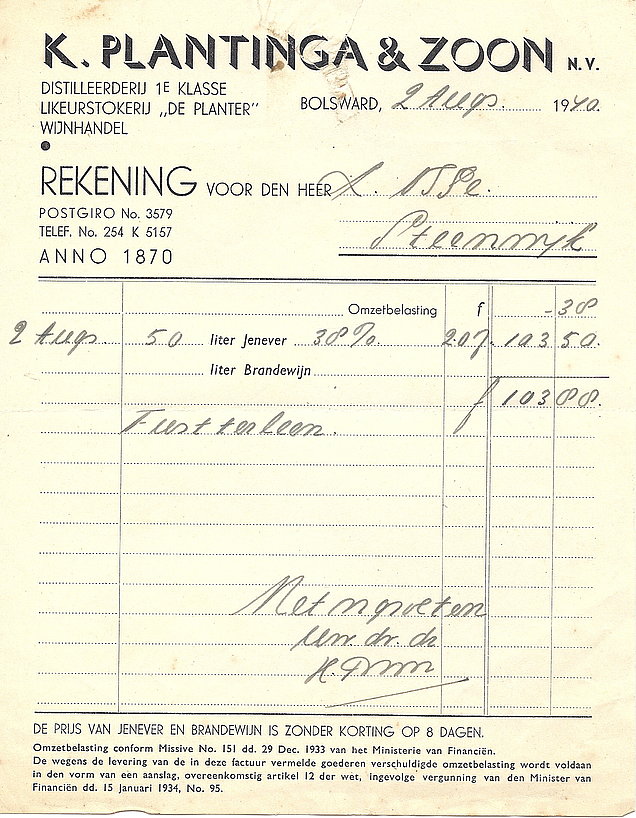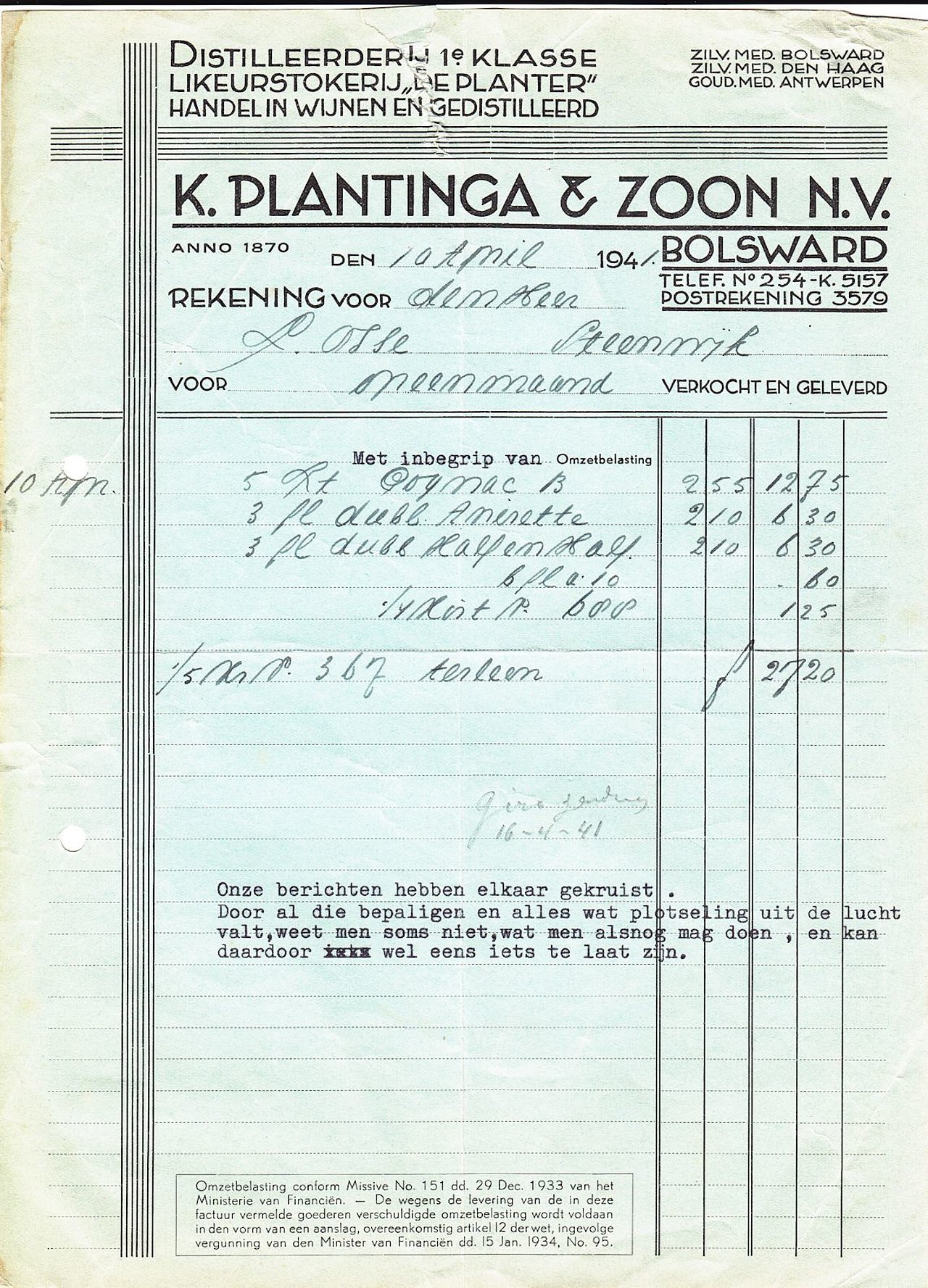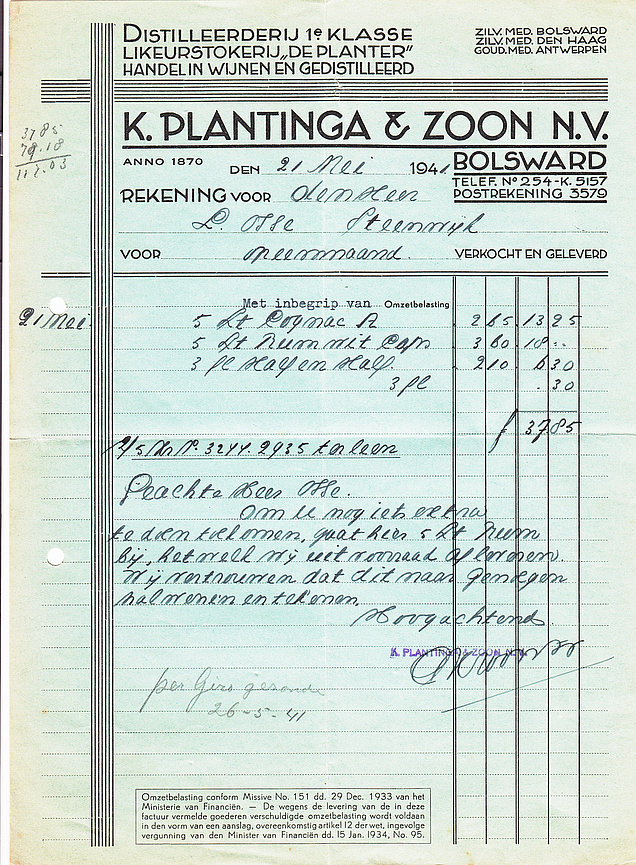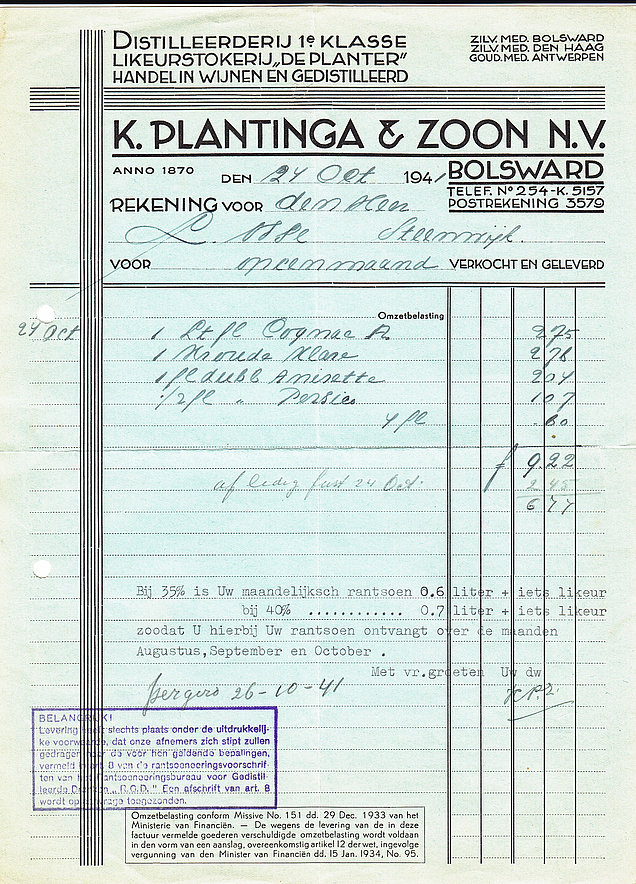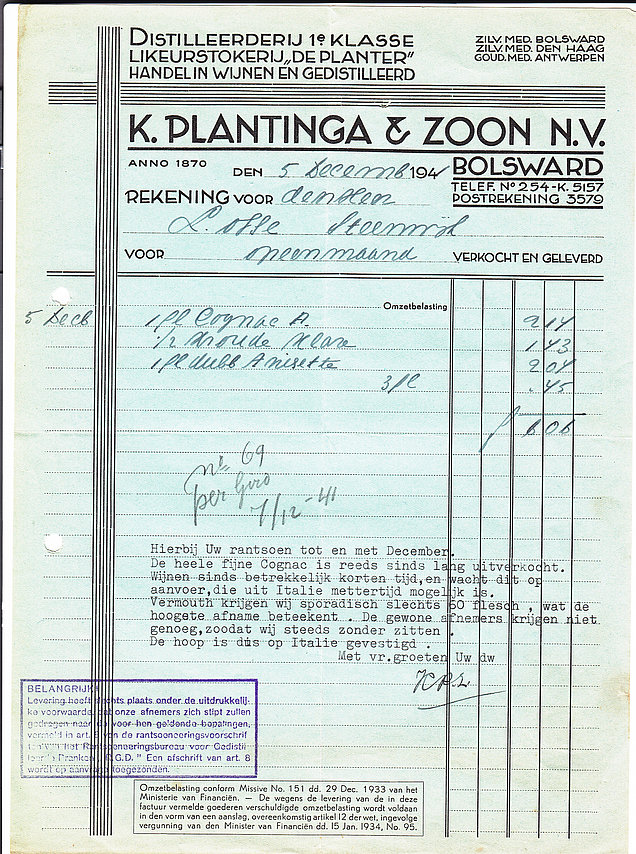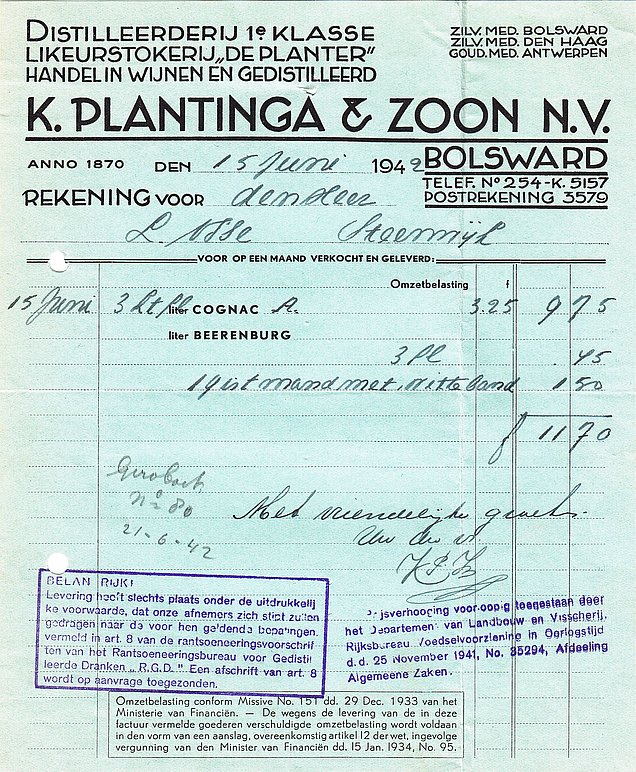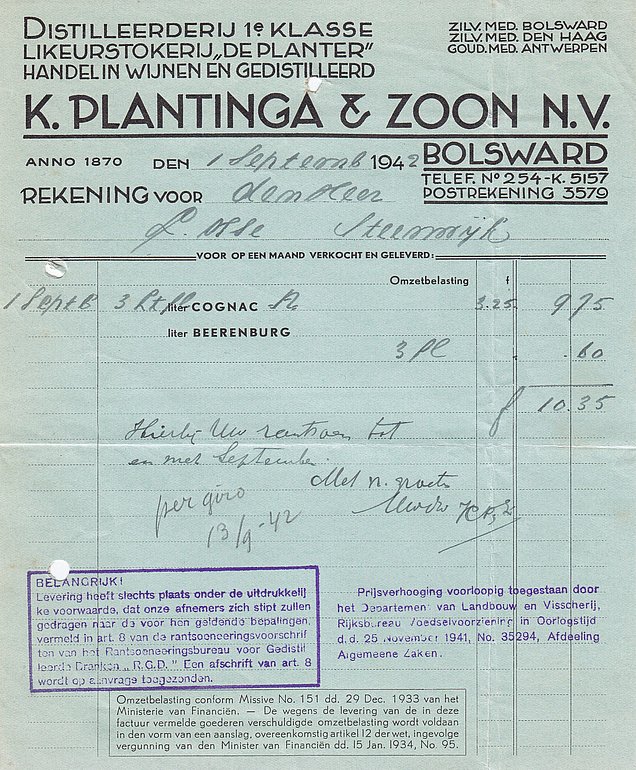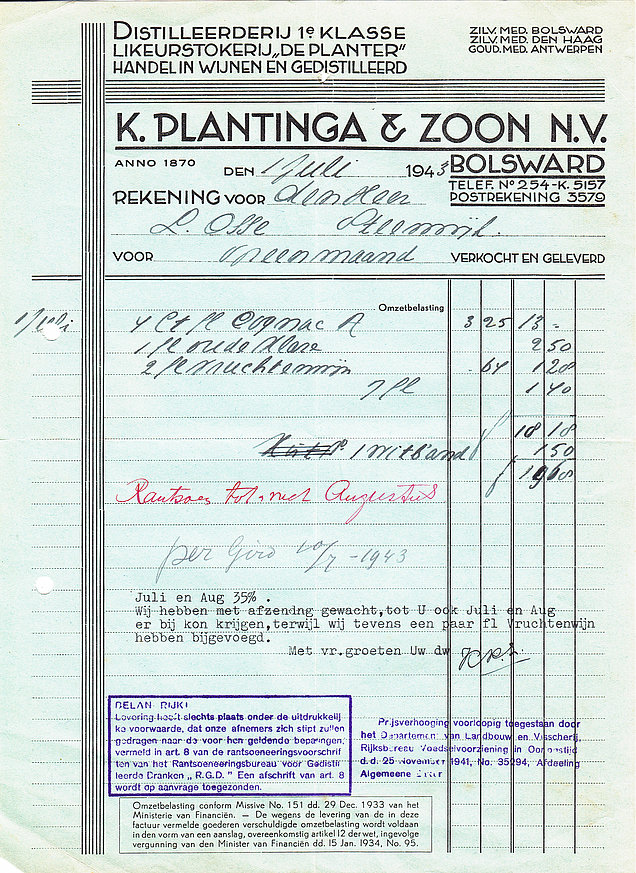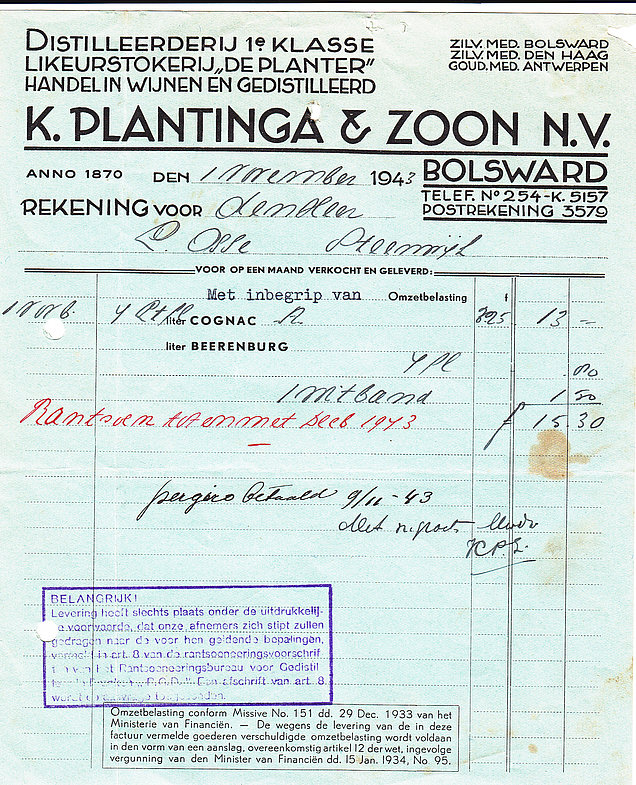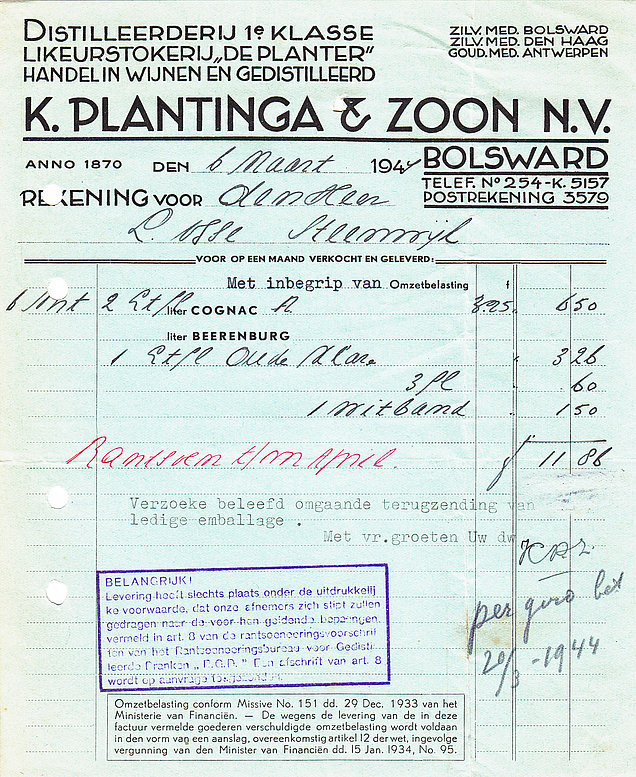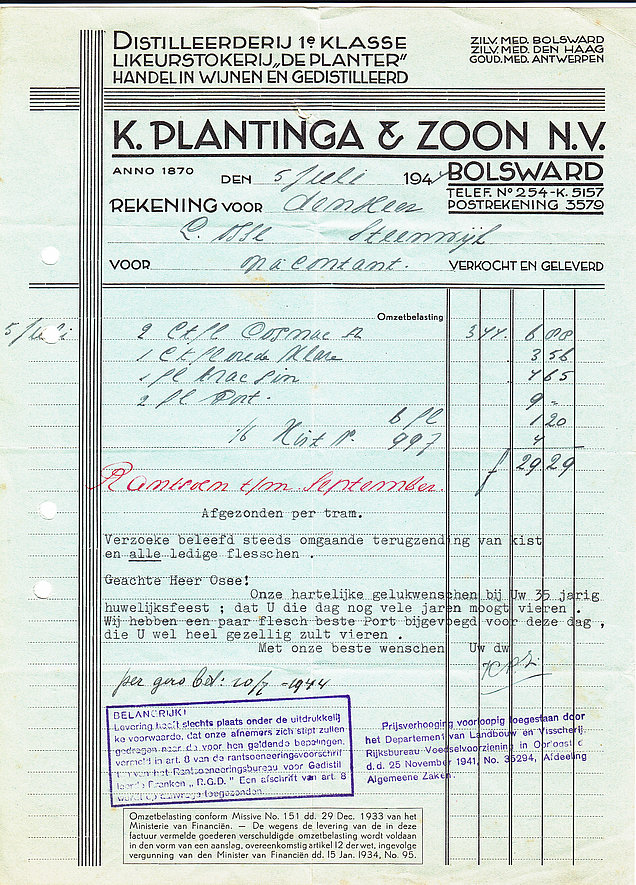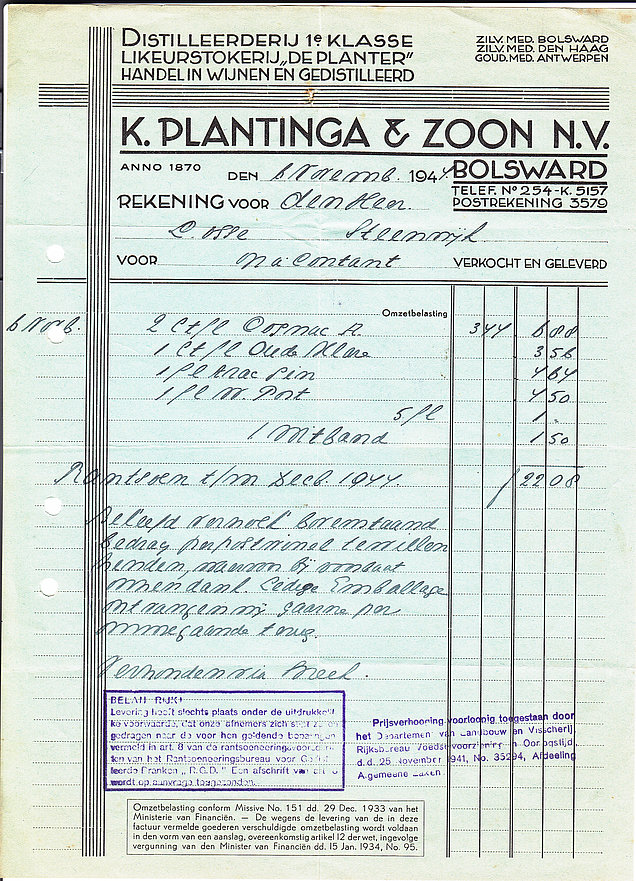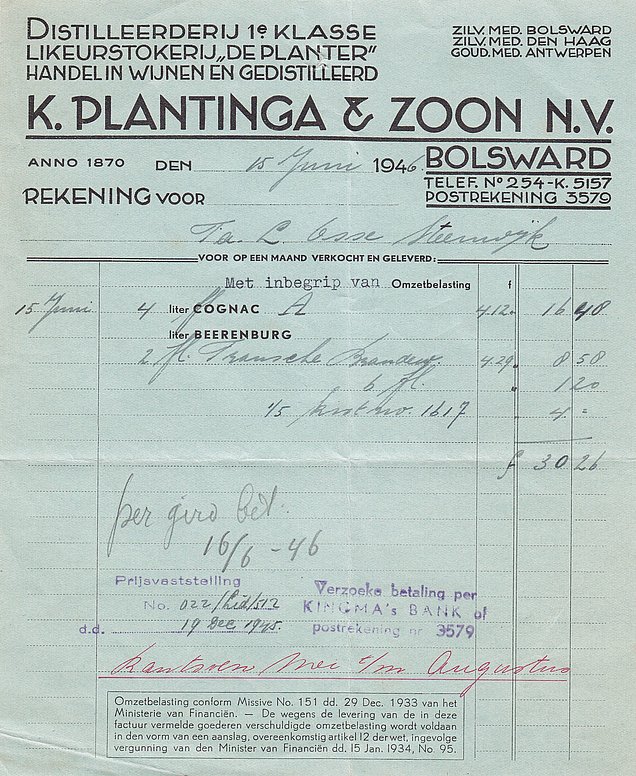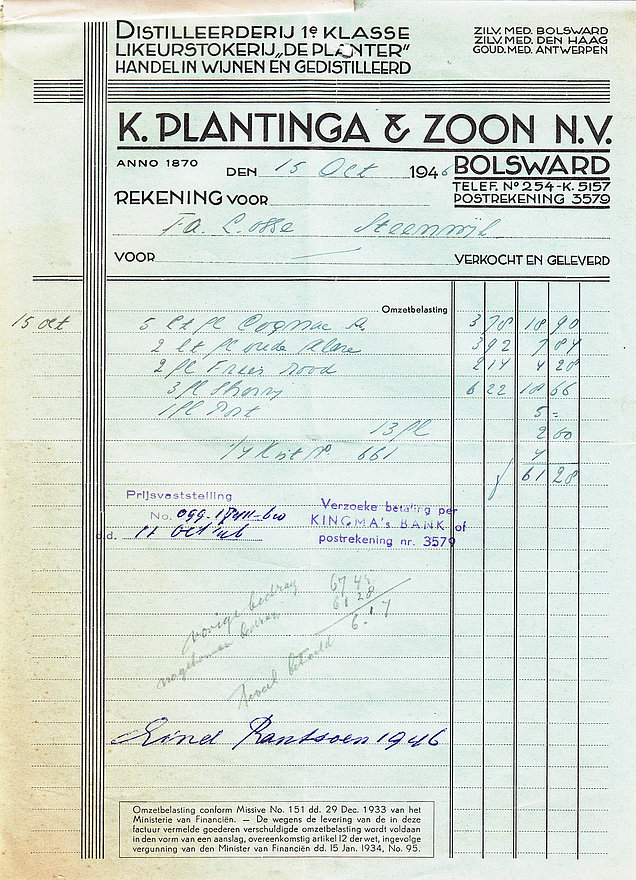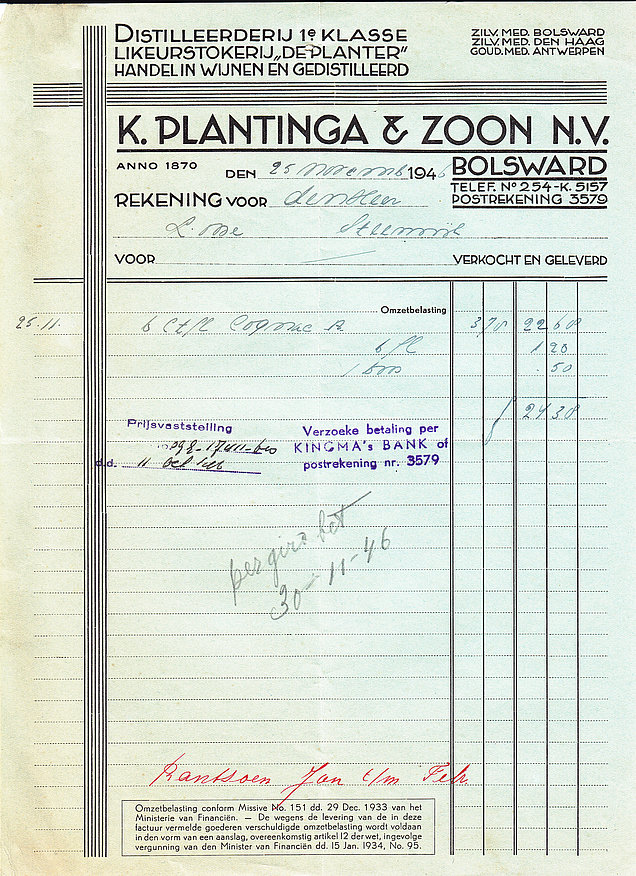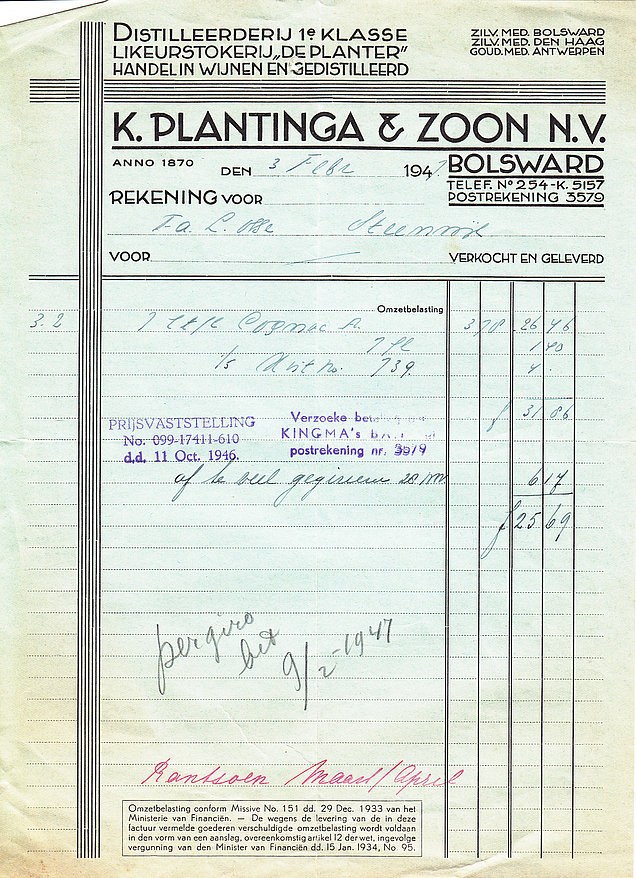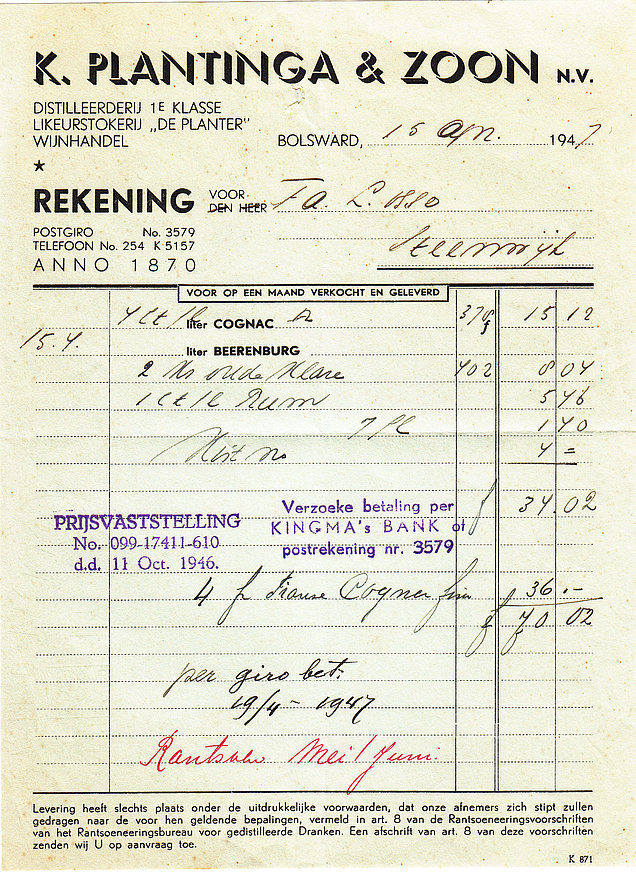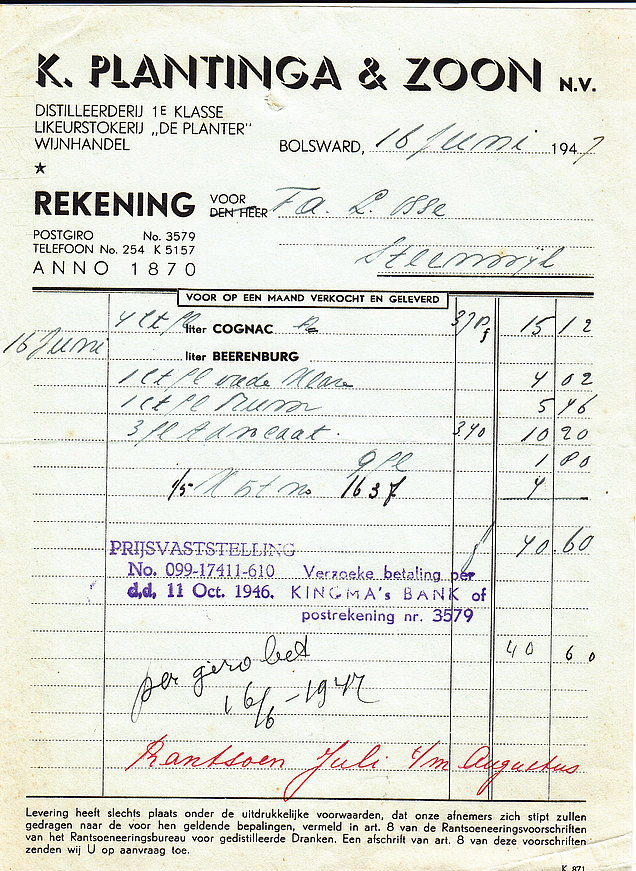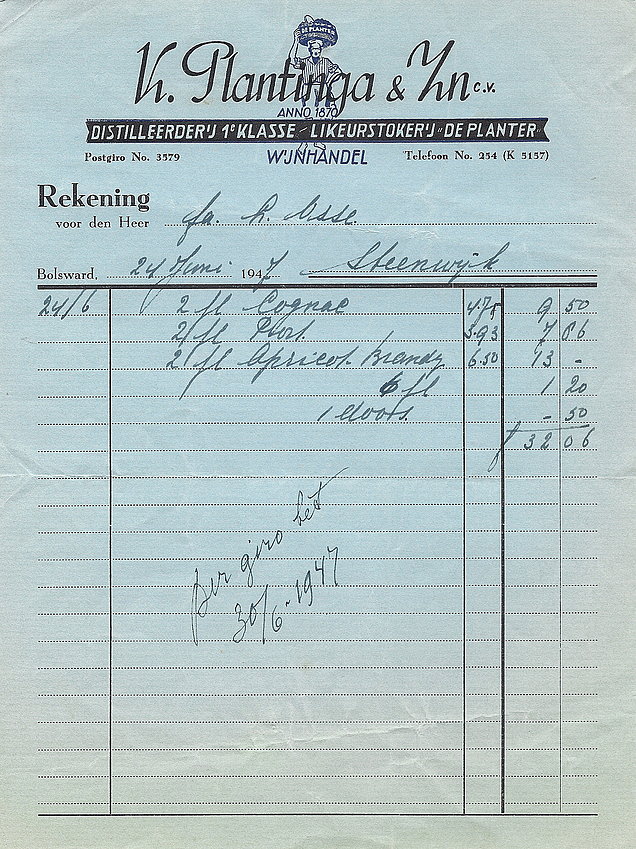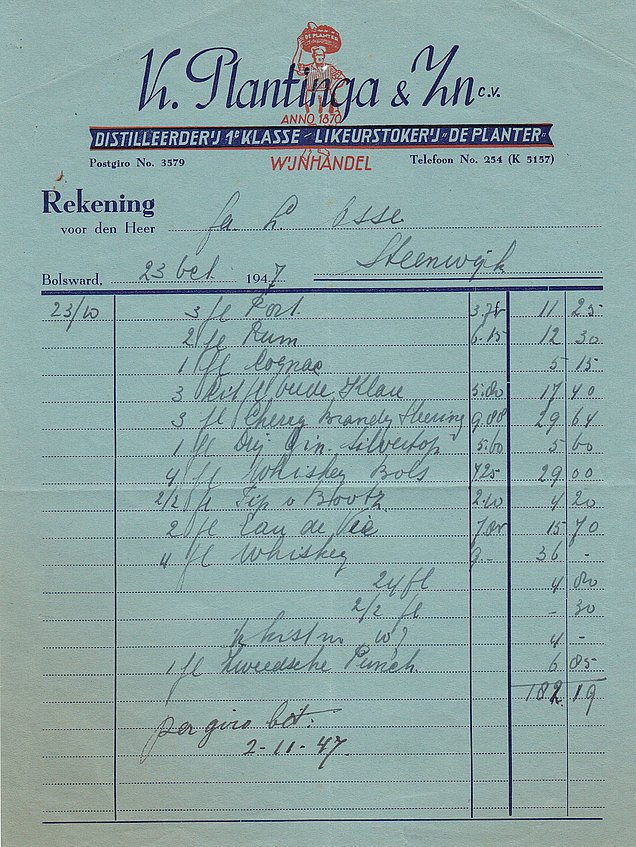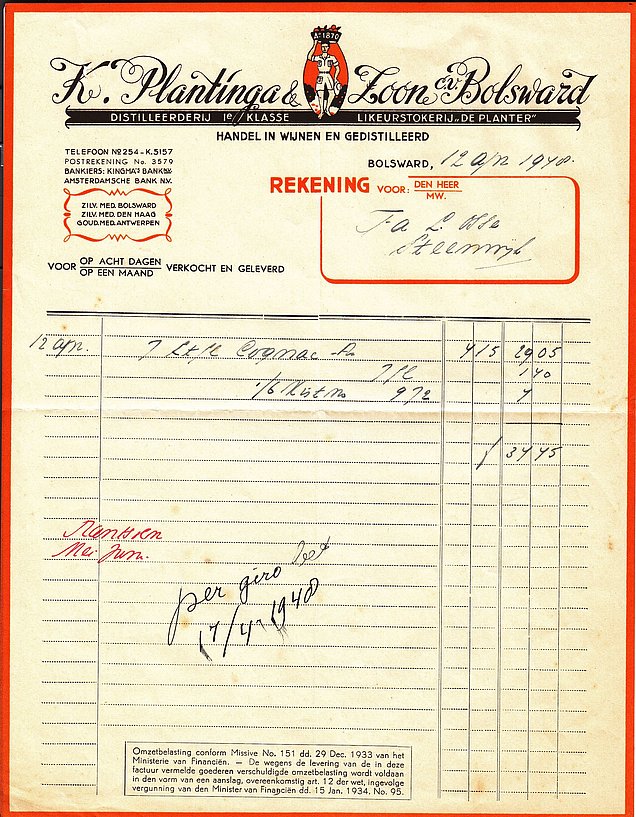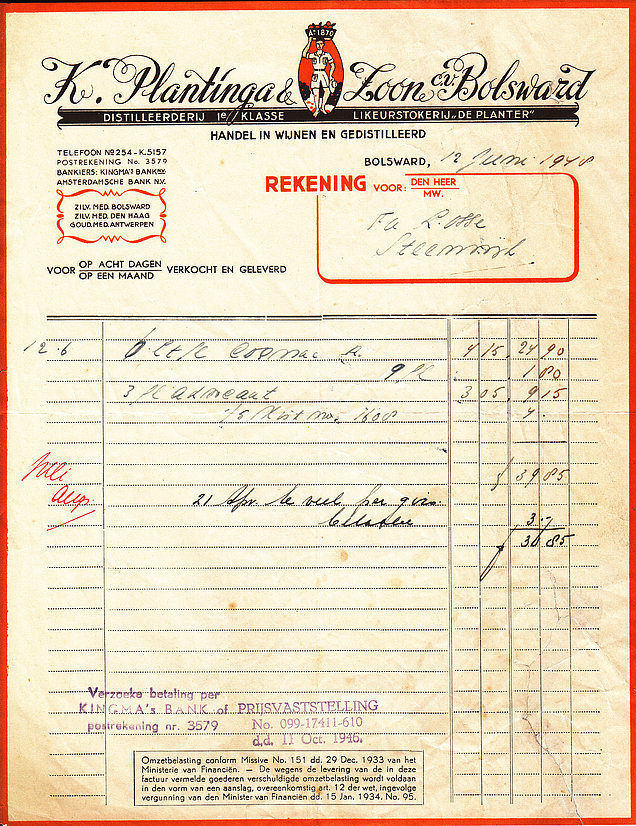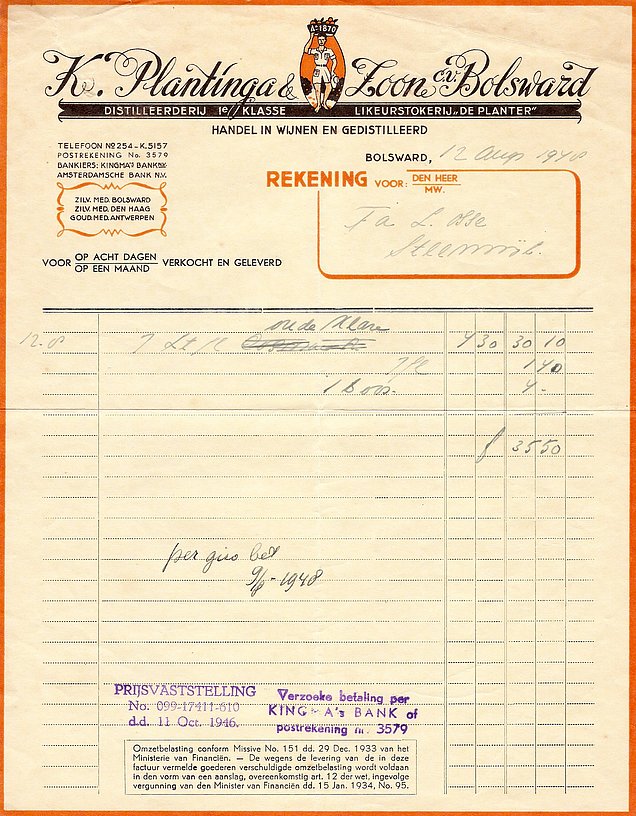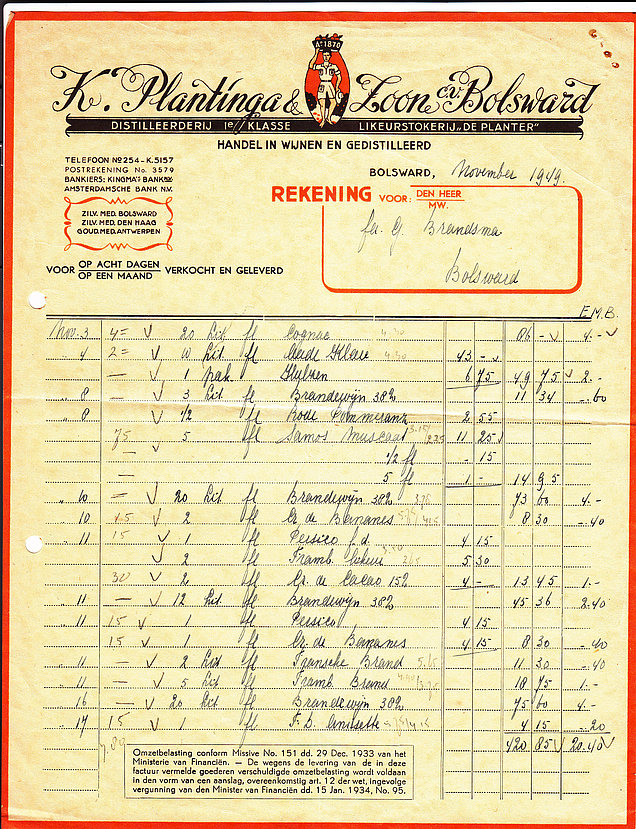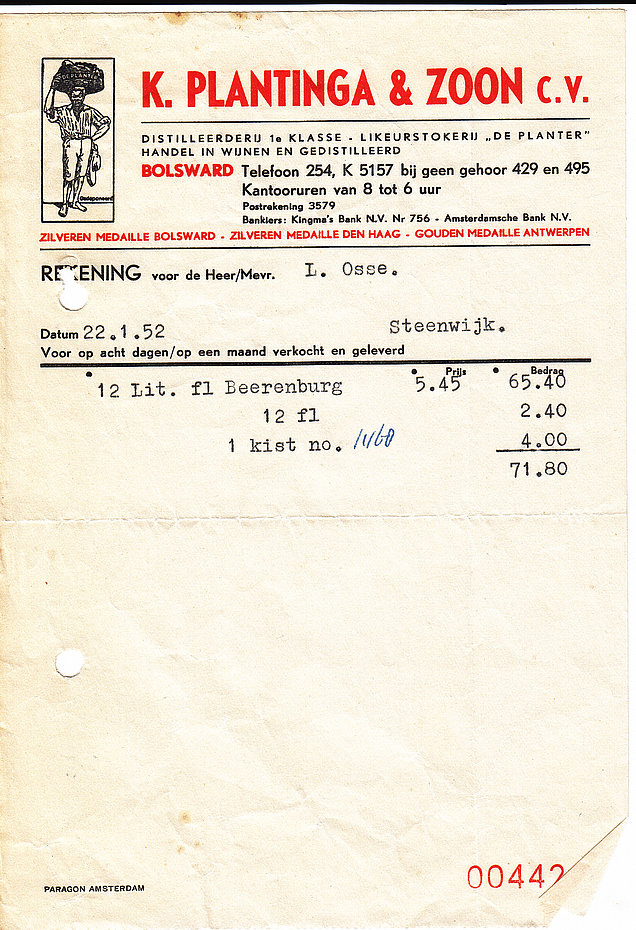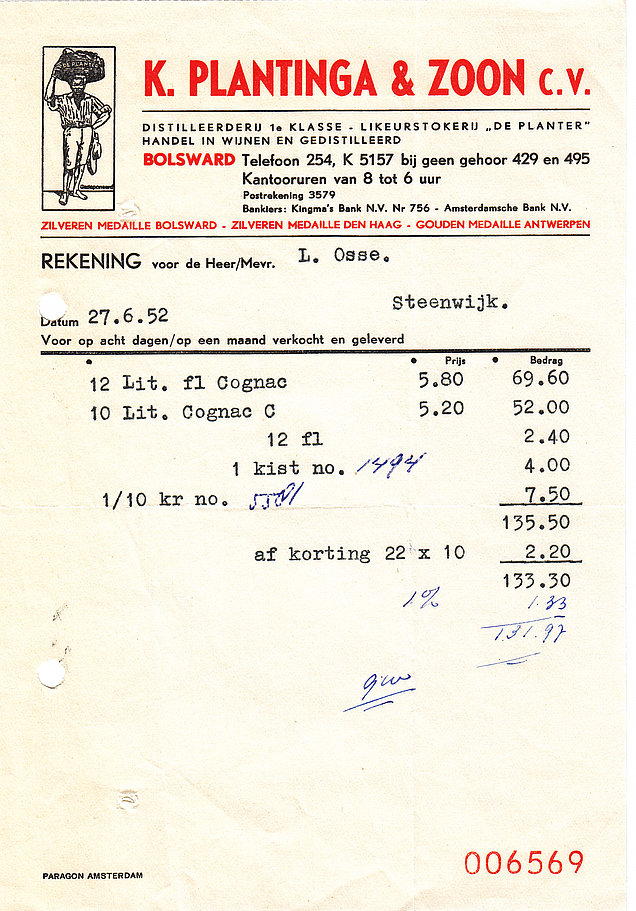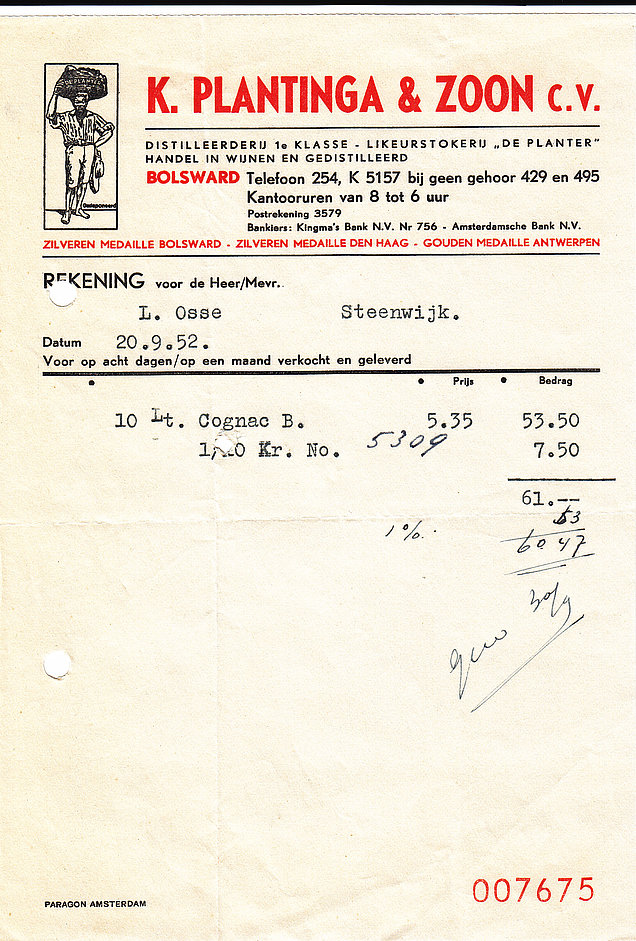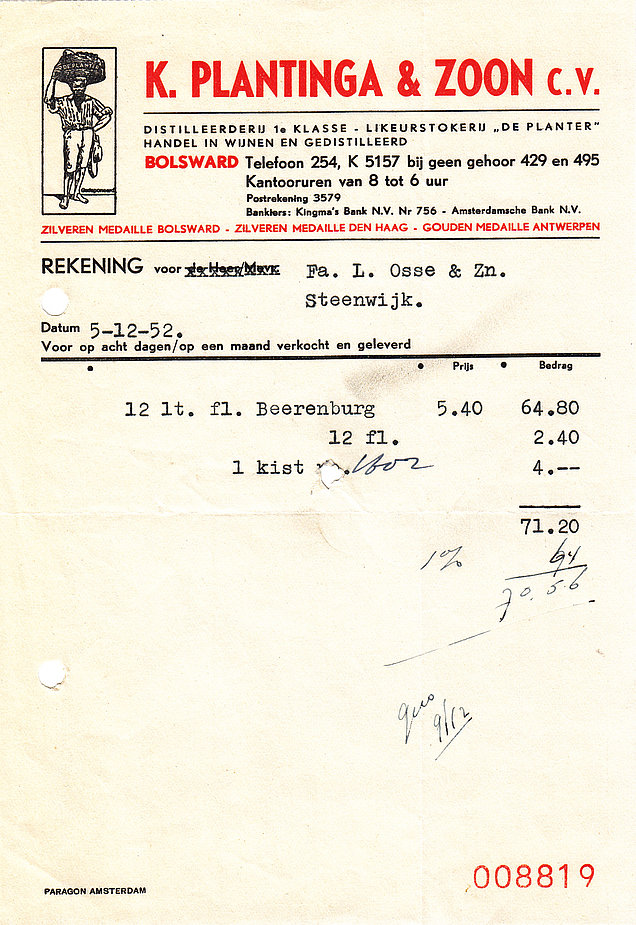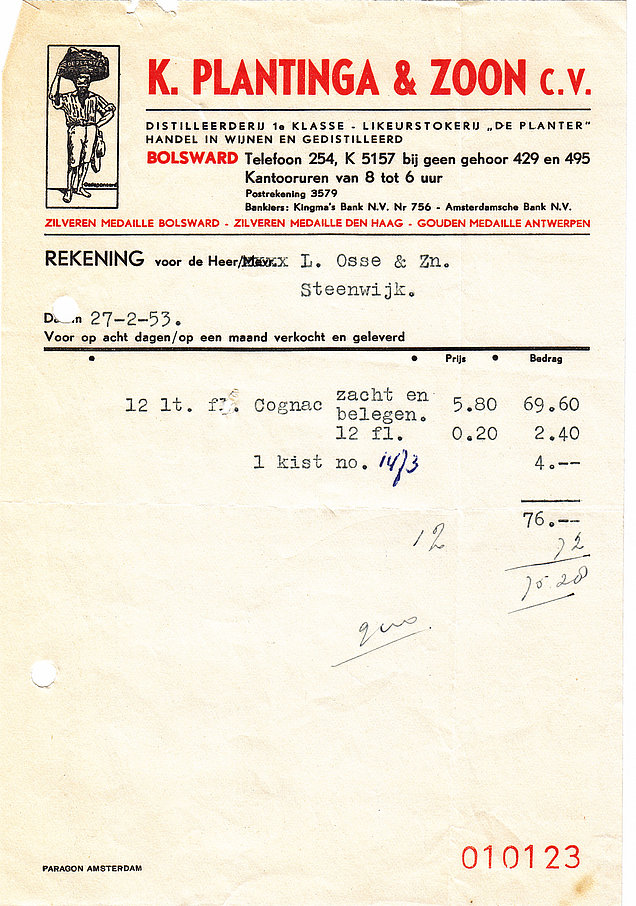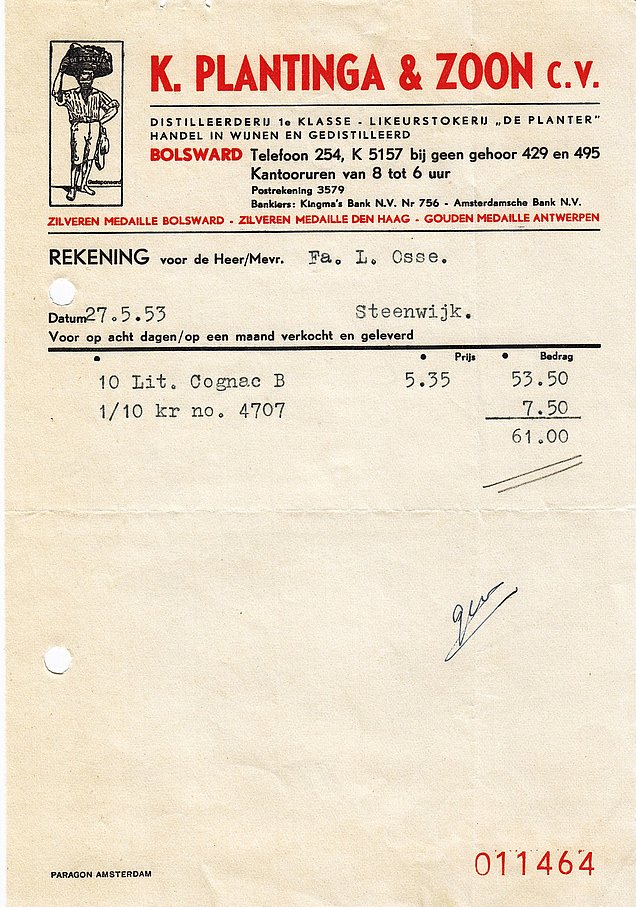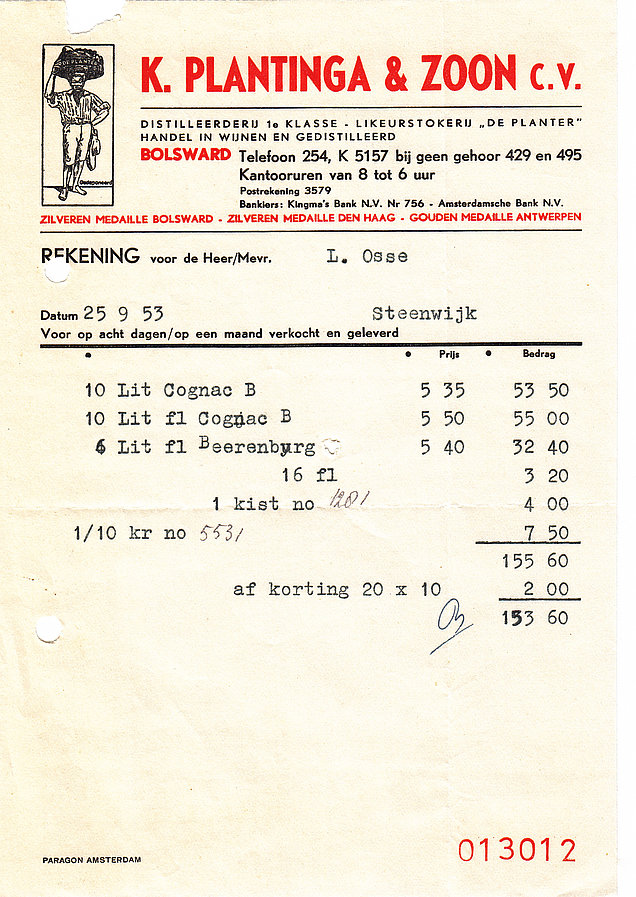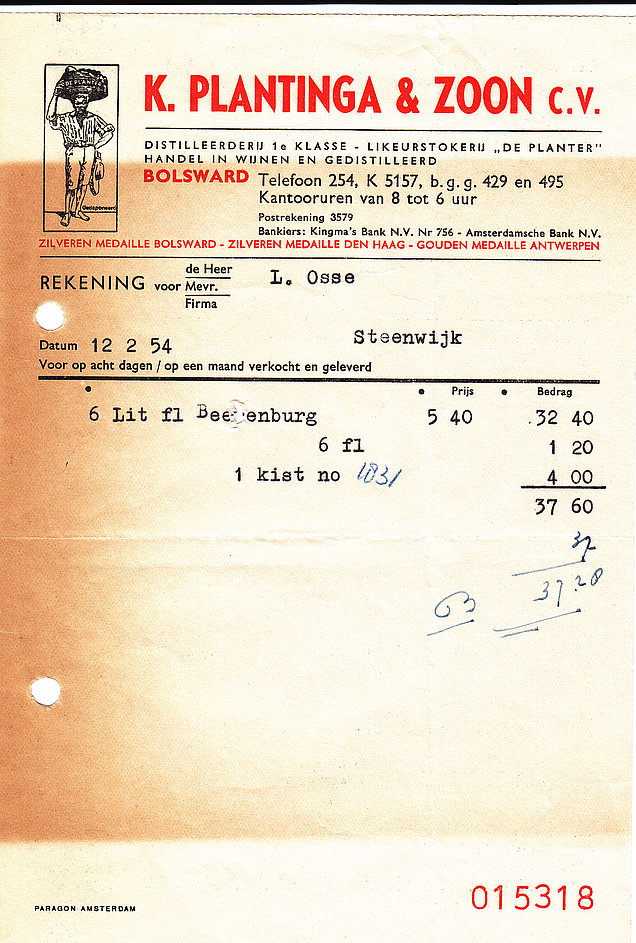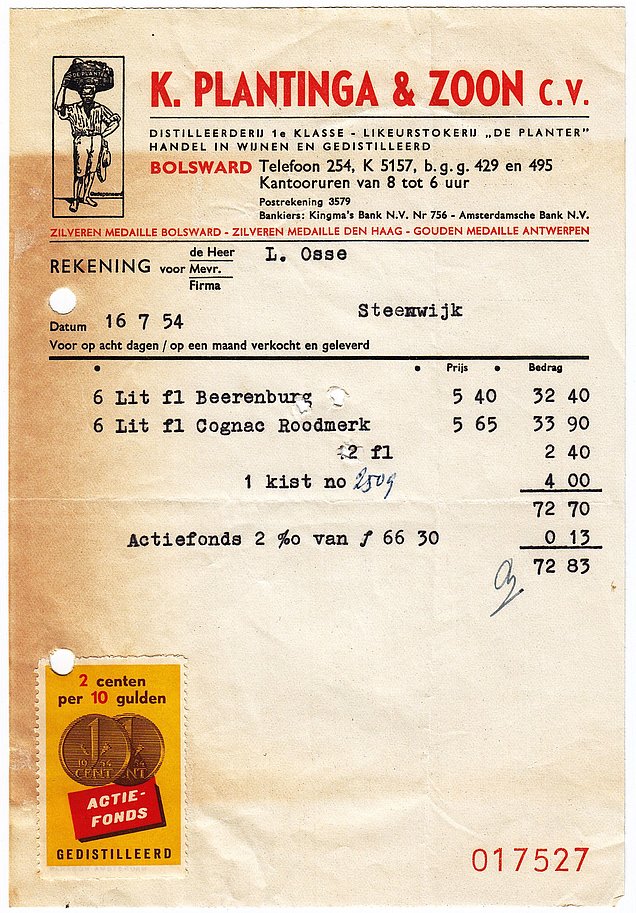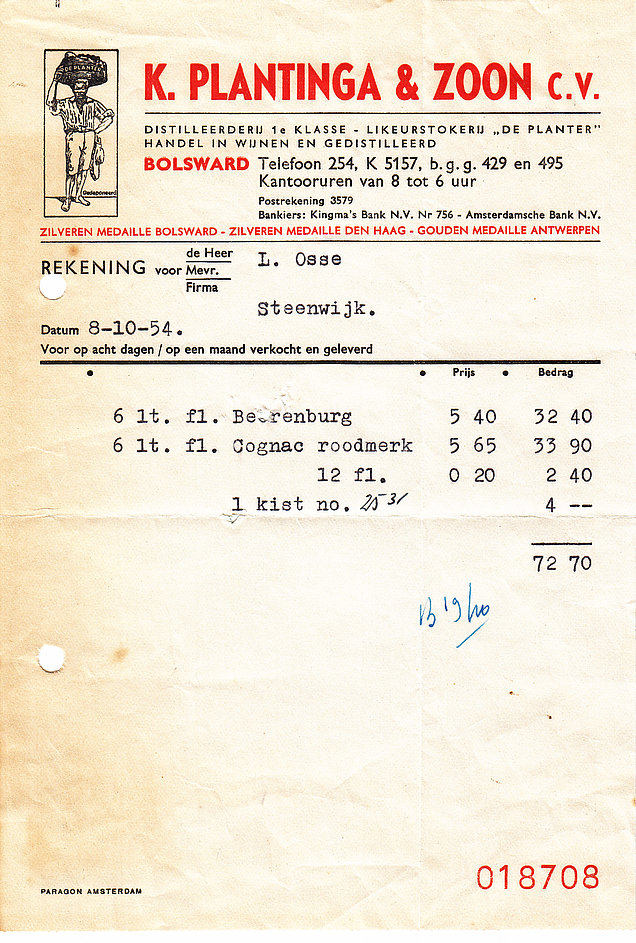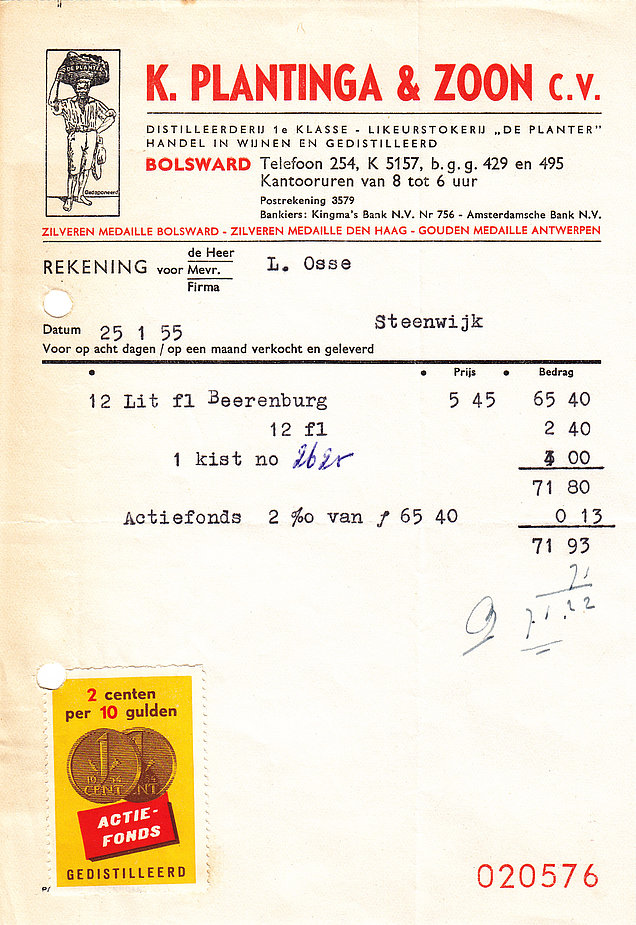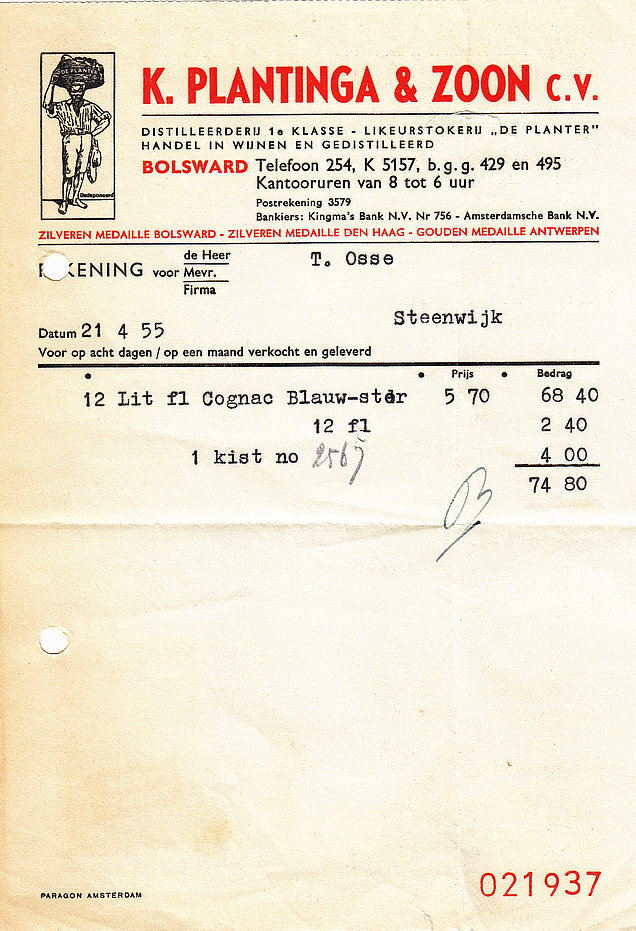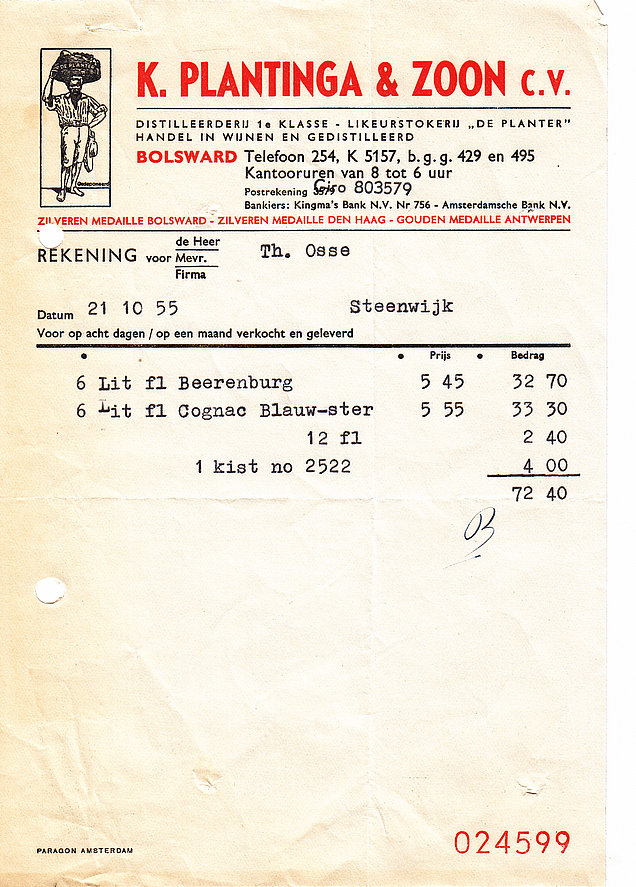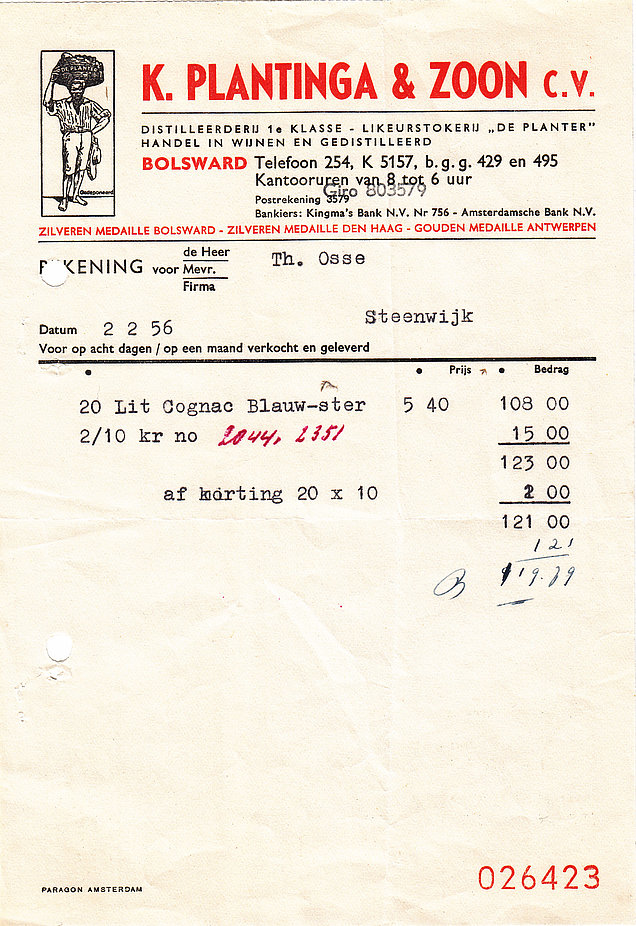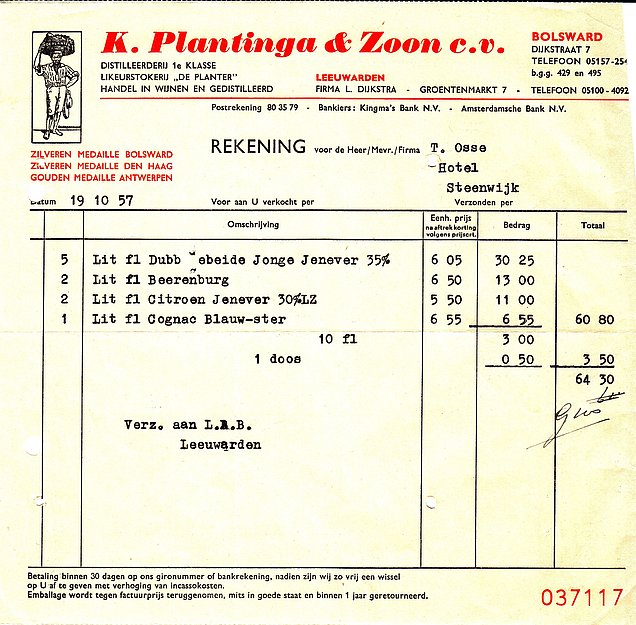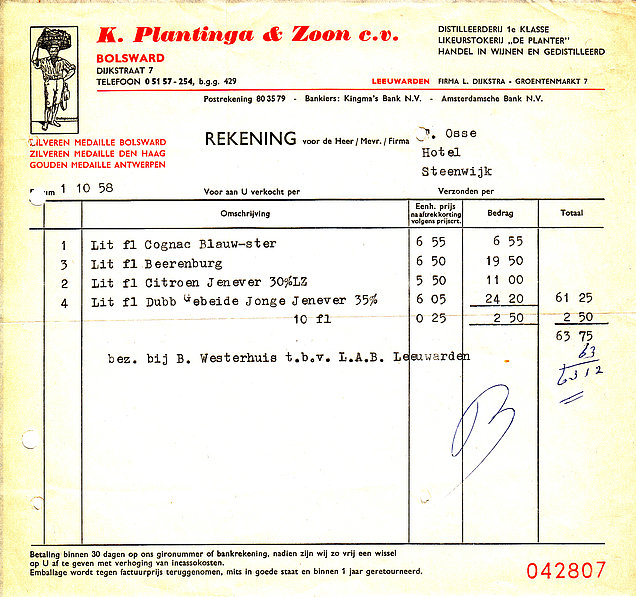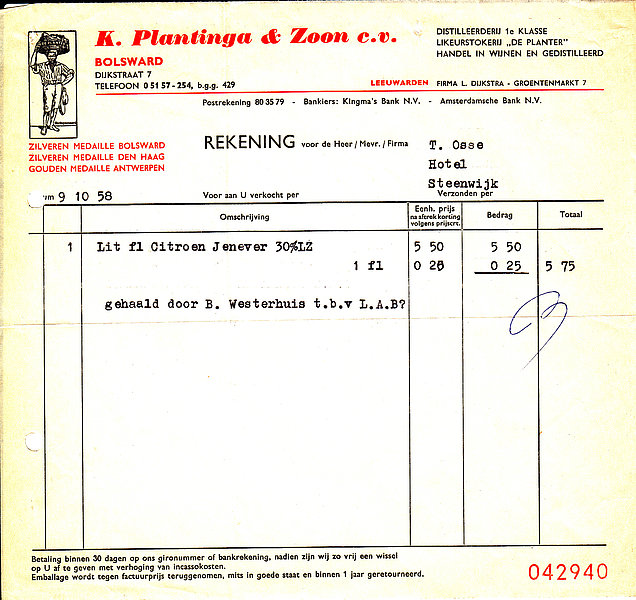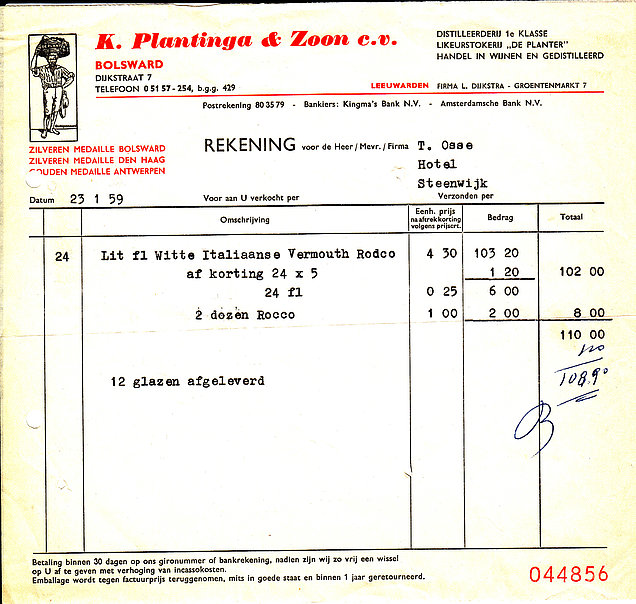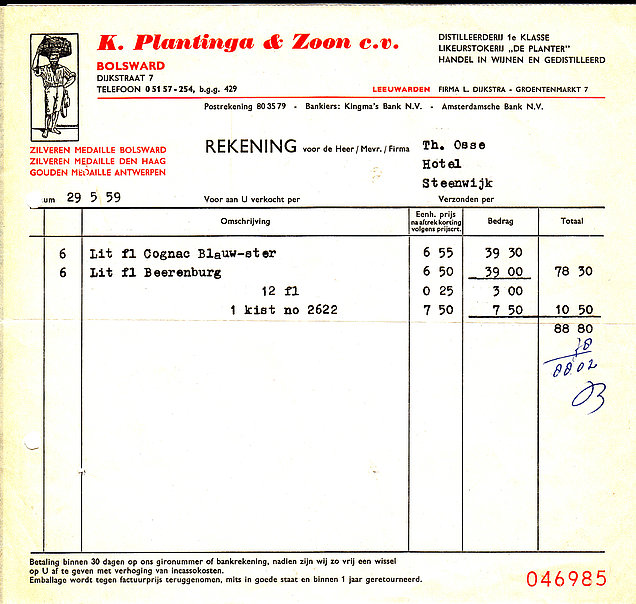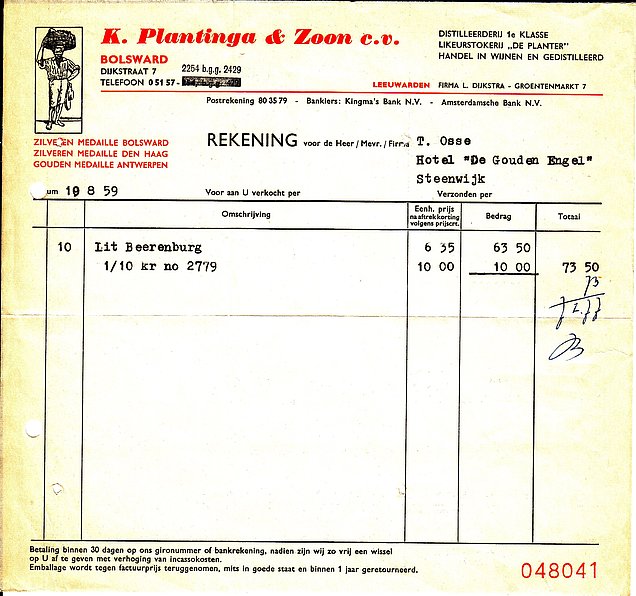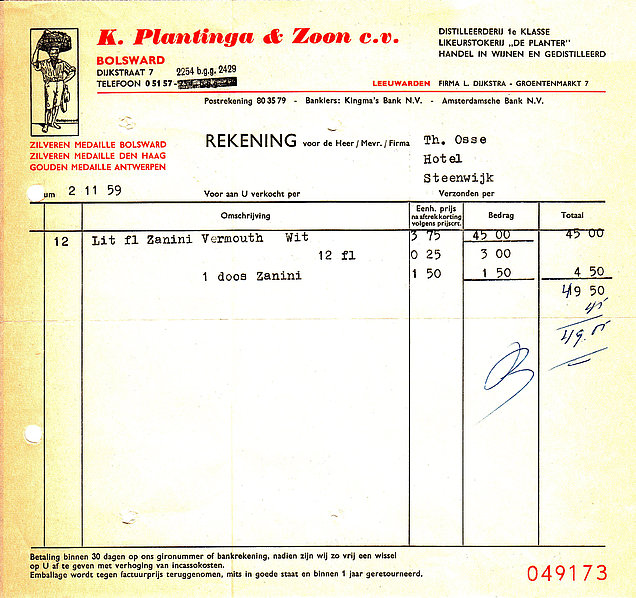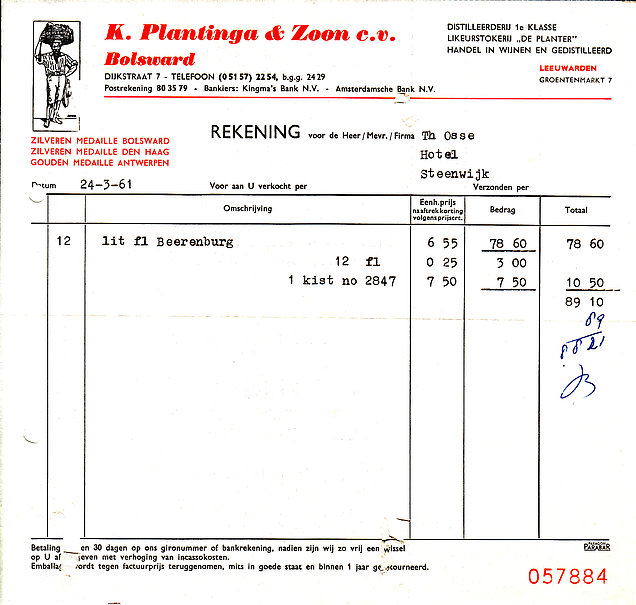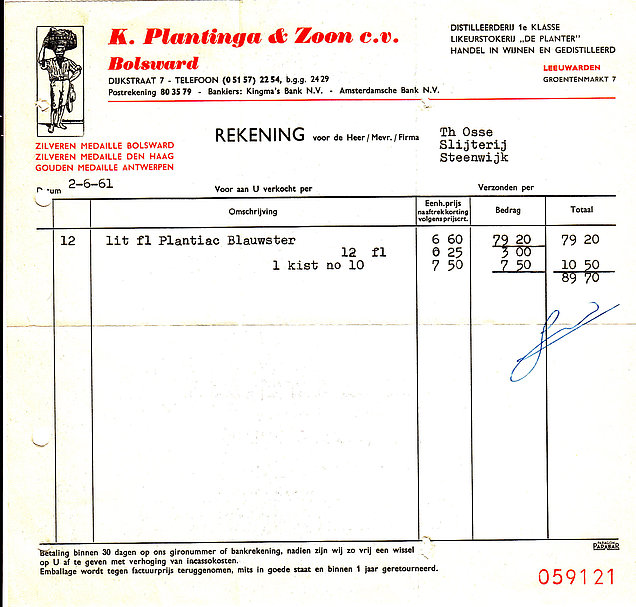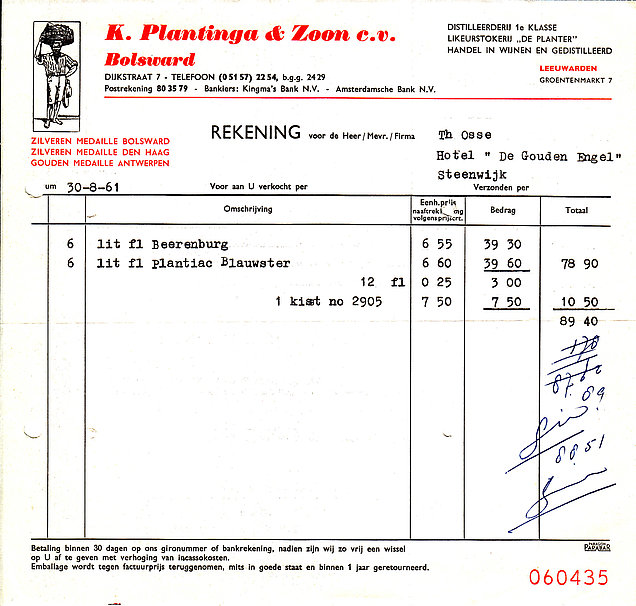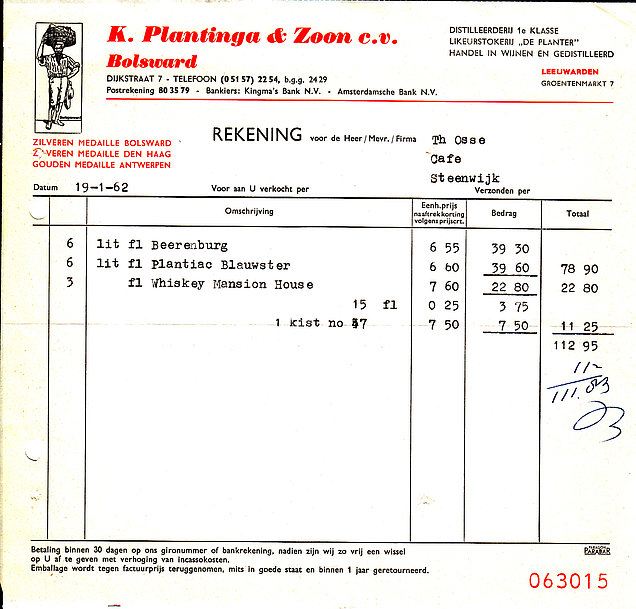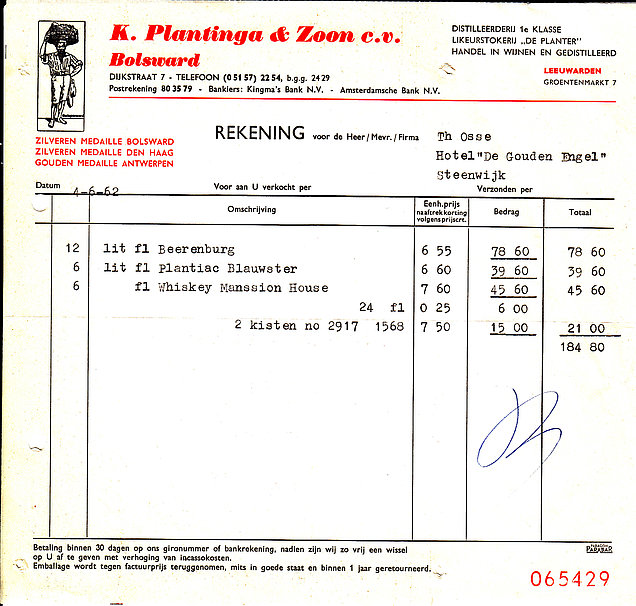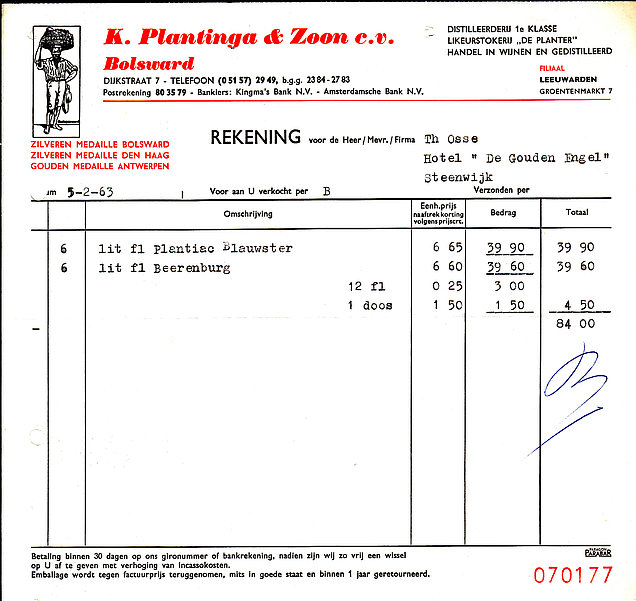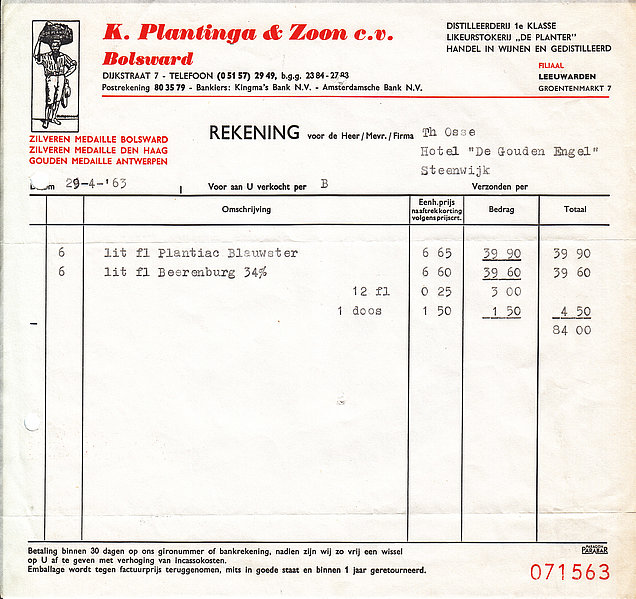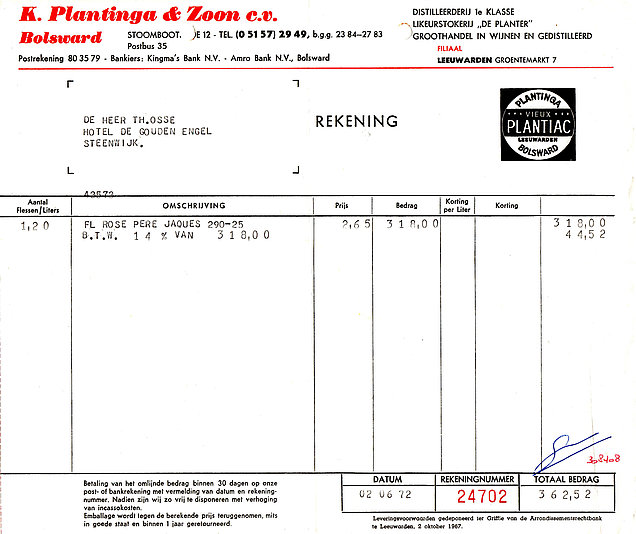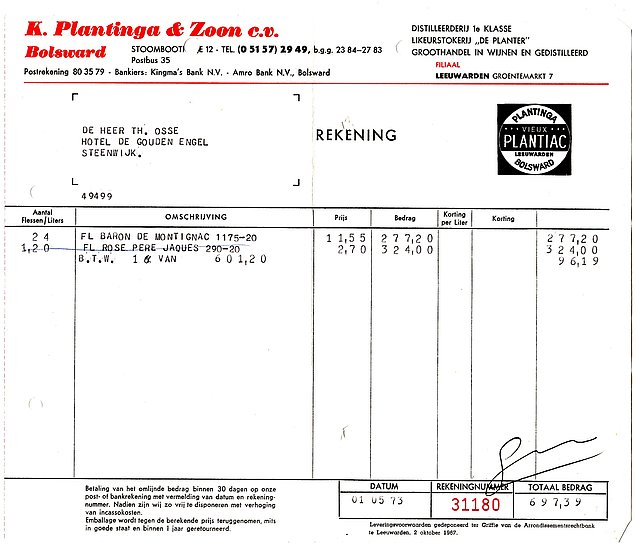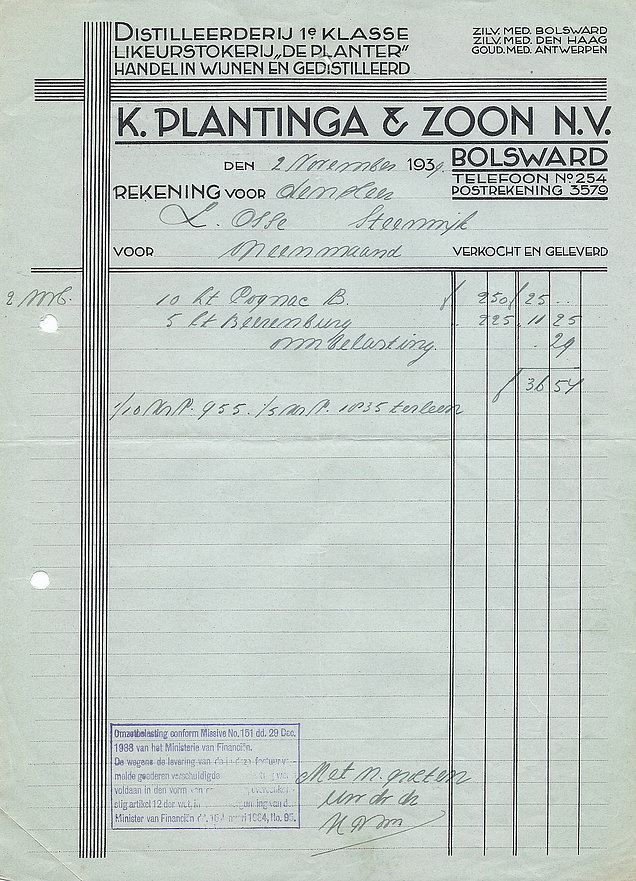
This is the oldest receipt mentioning "Beerenburg", as well as "Cognac". In this case "Cognac B" (at f 2,50 per litre). This might be short for "Cognac Blauw", and might refer to the kind of Cognac made by Plantinga themselves, later renamed to Plantiac.
The phone number has in the mean time changed from 41 to 254.
From 1818 until the adoption of the Euro in 2002, Dutch currency was the Dutch "Guilder" (in Dutch "Gulden"), which was usually abbreviated to "f"/"fl" or "Hfl" (for "florijn" or "Hollandse Florijn" respectively), the old name of the Guilder (it used to be called "Gulden Florijn").
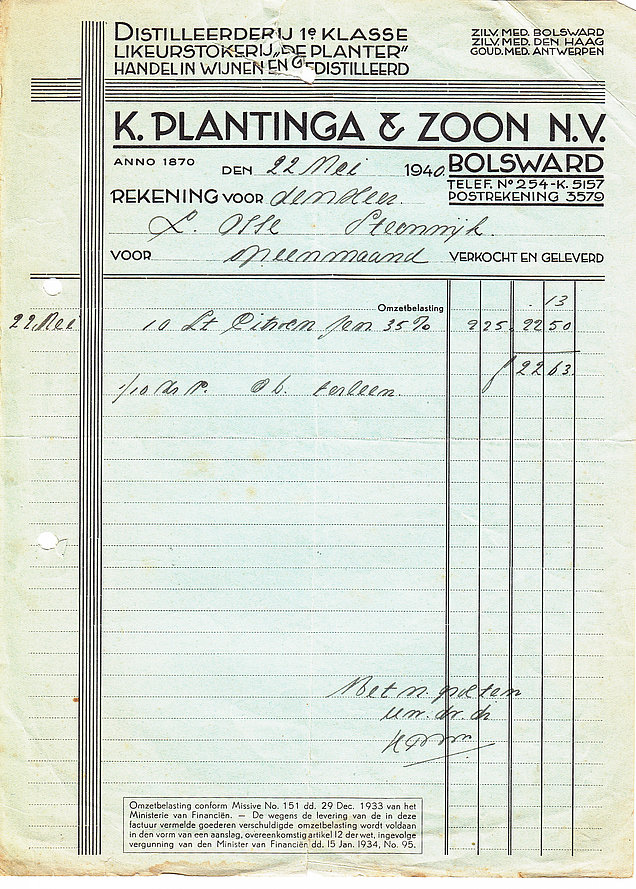
The first year of World War II. New stationery with pre-printed "194" as opposed to the "193" of the previous decade. Phone number is still the same, but now with "K" (kengetal, i.e. area code) 5157. At that time without the first "0" (these days Bolsward is 0515). "Anno 1870" has been added under the larger printed Plantinga name.
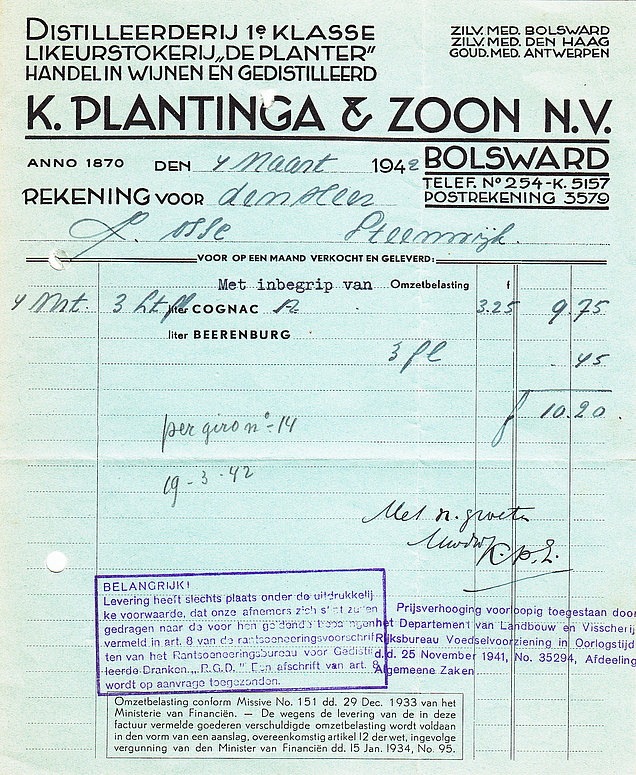
Different stationery again, with the six-double-striped of older layouts now replaced by fewer. "Cognac" and "Beerenburg" are now pre-printed on the paper - they were possibly the best selling products at the time.
It is notable that the letterhead still mentions "Plantinga & Zoon N.V.", whereas the company had changed into a "C.V." on 20 September 1941.That was over half a year before the date on this invoice.
N.V. stands for Naamloze Vennootschap, sort of like a "Joint-stock company"; "C.V." means Commanditaire Vennootschap, sort of like "limited partnership".
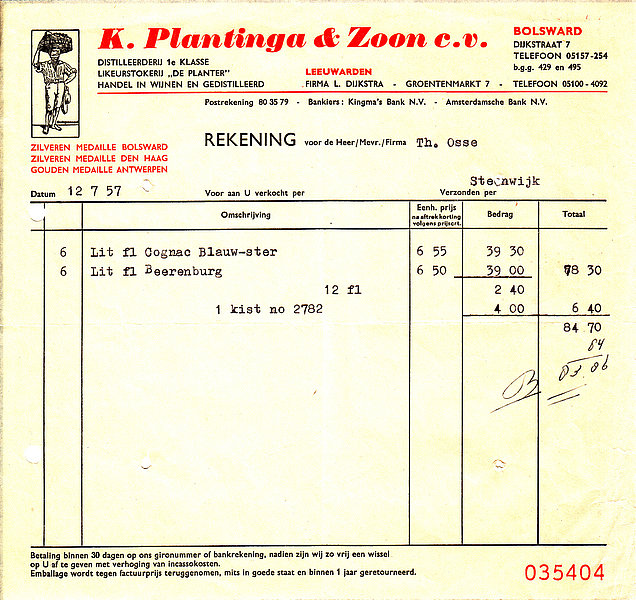
New stationery shows that the L. Dijkstra vintner is Leeuwarden has been purchased (which had already happened on 1 May 1955). The city of Leeuwarden is now also mentioned in communication and promotion.
The phone number is now pre-fixed with a zero, which initially meant "I want to call direct, not using a switchboard operator" (more and more of these operators were replaced by machinery).
Met dank aan Peter Mulder en Bastiaan Plantinga voor een aantal van de scans.
